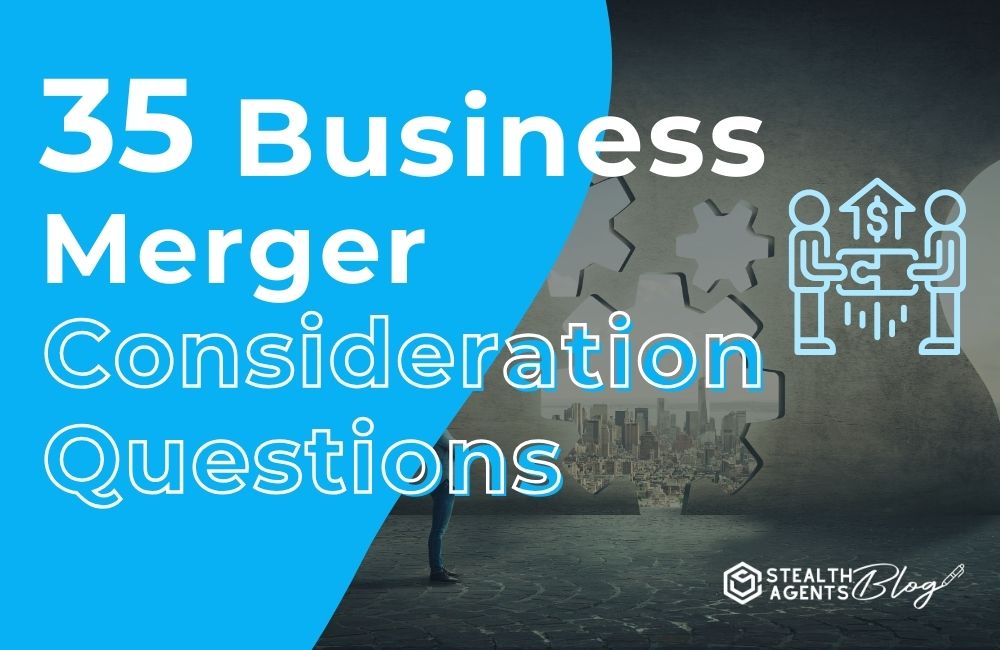Merging can be a bit like getting married – it’s exciting, filled with hope and potential, but it requires careful thought and preparation.
Whether you’re a startup entrepreneur looking to expand or a small business hoping to stay competitive, a merger might be on your cards.
But before you pop the question – ‘shall we merge?’ – there are a few things to consider.
Introduction: The Nexus of Two Futures
A merger isn’t just a business deal; it’s the unification of two business visions, two sets of values, and two cultures. Done right, it has the potential to create a dynamic future. But there’s a fine line between fusion and fission – a wrong move could end up costly, both financially and reputationally. This listicle arms you with a set of drill-like questions, guaranteed to dig through the glamorous façade of mergers, revealing what truly lies beneath.
The Importance of the Pre-Merger Assessment
A merger isn’t the place for surprises. By engaging in thorough pre-merger due diligence, you gain the clarity you need to understand the reality of your future merged entity. This means asking the right questions – the tough, the technical, and the tantalizing – to ensure all aspects of your businesses align before signing the dotted line.
The journey begins here, with 35 questions that will guide you from considering the merger to post-merger integration.
35 Business Merger Consideration Questions: Your Pre-Merger Checklist
Let’s dive straight into these crucial questions that must be on your radar:
-
What strategic objectives are we aiming to achieve with the merger?
-
How aligned are our corporate cultures, and what disparities could pose challenges?
-
In terms of brand perception, what are the strengths and potential risks?
-
What does our financial health look like, and how will a merger affect it?
-
Are there any ongoing legal or compliance issues that could affect the merger process or result?
-
How are the two companies’ management structures compatible or in contrast?
-
What are the primary reasons for the other company wanting to merge?
-
What defines success in the eyes of both parties, and more importantly, how is it measured?
-
Have we fully explored alternative options to merging as a means of achieving our business goals?
-
Are both companies competitive in the same markets, and how will we stack up against rivals post-merger?
-
What kind of effect will the merger have on our stakeholders, including employees, customers, and investors?
-
Can we ensure the consistent delivery of products or services throughout the merger process?
-
What intellectual property is owned by each company, how does that overlap, and how will it be managed?
-
What technology infrastructures are in place, and how will we integrate systems effectively?
-
Have we considered the tax implications of the merger and how to optimize the process accordingly?
-
How will the merged company’s capital structure be affected, and what plans are in place to address this?
-
Do we understand and have a plan for the impact on workforce dynamics, including layoffs and relocations?
-
What benefits and compensation disparity exists between the two companies’ employees?
-
How committed is each party to getting the deal done, and is there a chance of merger failure?
-
Have we examined any potential conflict of interest among employees, particularly in sensitive management roles?
-
Do both companies place equal importance on environmental and social issues, and how might this impact operations?
-
What are the market growth expectations post-merger, and are they realistic?
-
Are there any potential antitrust or monopoly issues to be aware of in the merged entity?
-
How will the merger affect our ability to innovate, and does the combined team have a plan to maintain an edge?
-
What is the potential for revenue and cost synergies, and how can we ensure they’re fully realized?
-
What governance structure will we adopt, and how will day-to-day operations be managed in the new company?
-
How will we handle any redundant operations or systems effectively during integration?
-
Have we strategized for any potential public relations crises that may arise during or post-merger?
-
What’s the plan for communicating the merger to both companies’ employees and external stakeholders?
-
How will we handle the naming and branding of the new entity, and what is the rationale behind it?
-
Have we calculated the financial strain associated with the merger process and integration and how to mitigate it?
-
What are the legal jurisdictions and regulatory environments we will need to navigate post-merger?
-
How will the board of directors and leadership roles be reshaped, and what impact will these changes have?
-
What milestones will we set to track integration progress, and what contingencies will be in place?
-
Finally, and most simply, are both companies really ready for this marriage, and are we prepared to see it through through thick and thin?
Conclusion: Begin with the End in Mind
The questions above demand more than passing thought; they require deep and introspective analysis from both parties involved. A merger is more than a transaction; it’s the creation of a new entity with a new trajectory. Approach it with caution and a strategic mindset, and you could find that the sum of the parts is truly greater. But neglect to ask these questions, and the resulting misalignment could be a wrecking ball to your business dreams.
So, before saying ‘I do’, weigh the costs, predict the future, and know exactly what you’re stepping into. Your future, and the future of your business, hangs in the balance.











